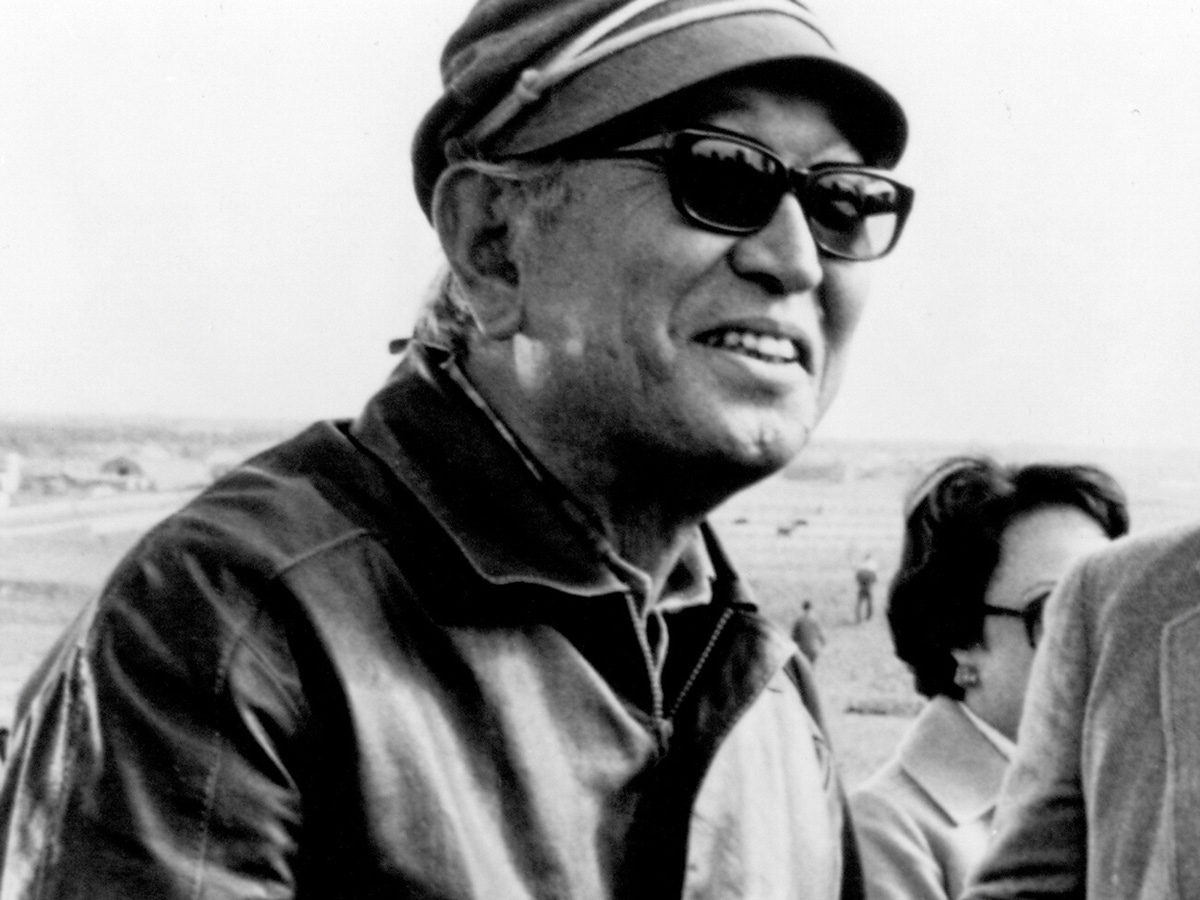
(c) Photofest / Getty Images
Why Akira Kurosawa's version of the Tokyo Olympics didn't happen? Part 2
The bad guys sleep better
Faced with mounting practical problems, even Kurosawa was forced to change course. On July 25, 1962, at the first meeting of the Documentary Film Production Committee, it was confirmed that Kurosawa would once again be asked to plan and produce the documentary, and Kurosawa responded by saying, "Due to the spread of television and the need for rapid reporting, we have been forced to change the basic concept. The production costs will be significantly cheaper than initially planned" (Asahi Shimbun, July 26, 1962).
What is noteworthy here is that, since they could not publicly admit that they had changed their basic concept because of budget cuts, they brought up the influence of television. There seemed to be a consensus among the production committee, as Toho's Vice President Mori later expressed a similar view, saying, "Kurosawa's own way of thinking has changed since returning from Rome. Today, with the launch of communications satellites, he believes that priority should be given to television coverage of the Tokyo Olympics, and that he should reconsider spending a huge amount of money to make a documentary" (Yomiuri Shimbun, February 6, 1963). And, according to Tabata, the reconsidered production costs were "expected to be less than 370 million yen" (Yomiuri Shimbun, July 26, 1962).
Just as the new start was about to begin, an incident occurred. On September 25, 1962, Chairman Tsushima Toshikazu and General Affairs Director Tabata Masashi resigned at the general meeting of the Japanese Olympic Committee (JOC). This was because Indonesia, the host country of the 4th Asian Games in August of that year, refused to issue visas to athletes from Israel and the Republic of China, leading the International Olympic Committee to announce that an event in which eligible countries could not participate was not a legitimate event. Japan, which was competing in the event, was also caught up in this issue, and although it participated in the games due to the relationship between Indonesia and Japan, it left a legacy of trouble, and Tsushima and Tabata resigned from their positions at the JOC to take responsibility. It was initially expected that they would remain as Secretary Generals of the Organizing Committee for the Olympic Games, a separate organization, but they were caught up in a wave of politically-related power struggles and ended up resigning as Secretary Generals. These internal personnel issues also cast a shadow over the production of the documentary film.
Meanwhile, Kurosawa, as soon as " Tsubaki Sanjuro " was completed, began work on his next project. " High and Inferno " (1963), a child abduction-themed film, was researched in January 1962 and the script written in February and March. Filming was to begin in April as planned, but as Kurosawa was keen for Nakadai Tatsuya to play the role of a police inspector, it was postponed until the end of July, waiting for Nakadai's schedule to clear up. The start of filming was then further delayed, with filming finally commencing on September 2nd and finishing on January 31st of the following year, 1963. In other words, amid the turmoil surrounding Tabata's resignation, Kurosawa was devoted to filming "High and Inferno."
By the time Kurosawa finished filming, the Tokyo Olympics Documentary Film Committee had been established within the Organizing Committee, with Secretary General Yosano Hideo, who had been appointed as Tabata's successor, as its members, Tabata, who remained in the JOC as a committee member, Toho Vice President Mori Iwao, Towa President Kawakita Nagamasa, and Kurosawa as members. Prior to the committee meeting, a budget proposal for the Tokyo Olympics documentary was presented to Kurosawa. The total amount was 234,287,200 yen, and the production costs were calculated based on an assumption that the film would be made on 35mm film, in color, Cinemascope, and with a running time of 2 hours 30 minutes to 3 hours, but at the committee meeting on March 22nd, Kurosawa declared, "It's impossible to make an ideal film with 250 million yen," and announced his intention to decline the director position.
It may seem that Kurosawa's relationship with the Olympics had now ended, but in reality, with strong persuasion from Yosano, Kurosawa stated that he would be happy to offer his advice, and although he declined to be named as a supervisor, he remained as a member of the Documentary Film Committee.

